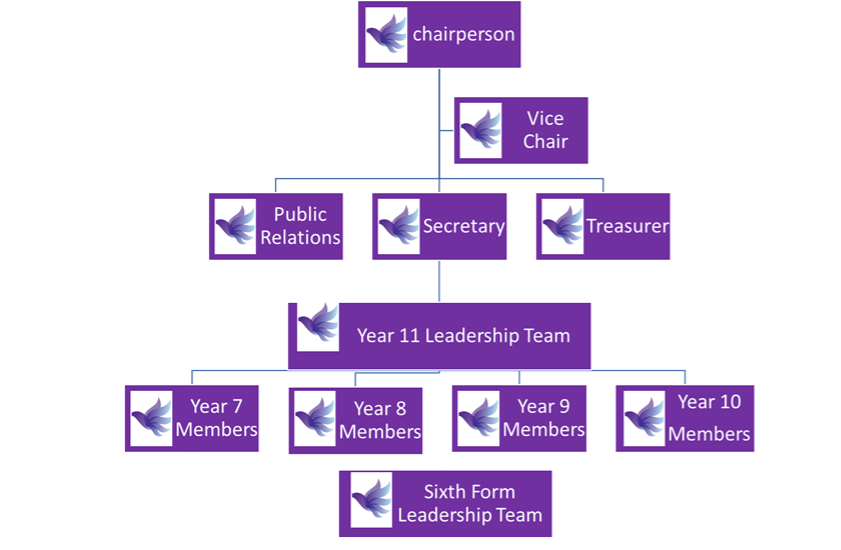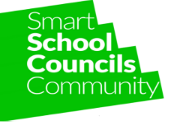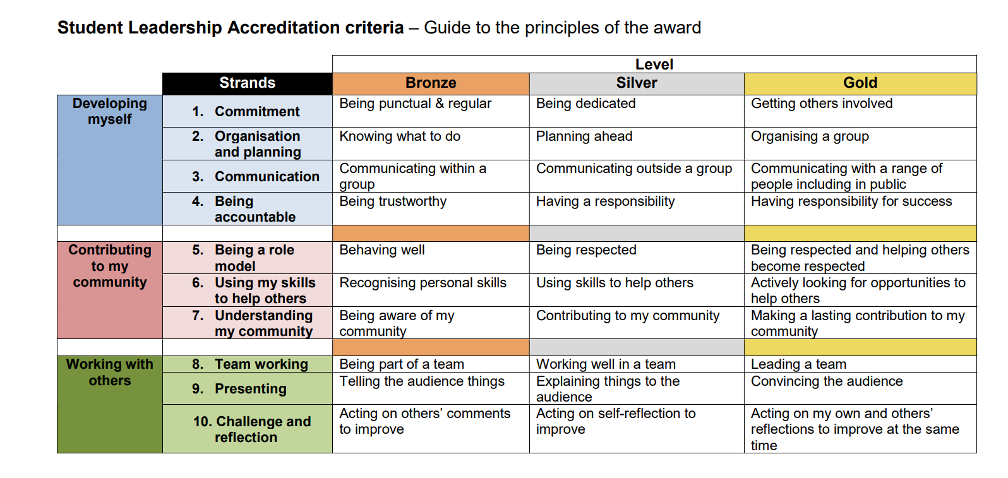

Student Leadership
Student Leadership at The Academy of St Nicholas aims to: –
- Increase student engagement in learning.
- Encourage collaboration between students and their teachers.
- Bring the school community closer together.
- Create and maintain a positive environment and culture.
- Build respectful relationships, connections and belonging.
- Promote of the 5 British values; democracy, rule of law, individual liberty, mutual respect, tolerance.
Year 11 Student Leadership team & Sixth Form Leadership Team
A team of 20 year 11 and 15 sixth form students who successfully completed the application process are members of the student leadership team.
The leaders are an integral part of the running of the Student Council.

The Student Council is a group of students who have been elected by their peers to share their views and raise issues with the Senior Leadership team and Governors of the Academy. In a fully democratic system, each
of St Nicholas is a member of the ‘Smart Student Council’ programme to ensure that all students have a voice student gets to vote and express opinions. Representatives act as a communication team to share those messages and inspire change.
The role of the student council is to express both their own views and those of other students. They communicate students’ thoughts and feelings with the school leaders and attend (and lead) regular meetings.
The Academy, here at the Academy.

Student Leadership accreditation
Student leaders at the academy of St Nicholas have the opportunity to gain a qualification.
The Student Leadership Accreditation (SLA) is an innovative way of recognising students’ leadership skills and the impact they have in the classroom, across the Academy and in the wider community.
The SLA was developed by students, for students, in key partnership with teachers, HE and FE institutions and employers. Together they identified ten key skills that young people need to be successful leaders, and grouped them into three core themes:
- Developing myself
- Contributing to my community
- Working with others
These skills and themes are grouped into a self-assessment framework, which can be adapted to reflect the Academy context and ethos. Students assess themselves against this framework and then actively seek opportunities to advance themselves and gather evidence to showcase their new skills in a portfolio.
Students can work towards the SLA at three levels: Bronze, Silver and Gold. Unlike other awards, students peer assess each other’s portfolios as well as being externally moderated, ensuring the process both reinforces and rewards meaningful student leadership.
The SLA was developed ‘by students, for students’, and it is the focus on the individual that makes the award so popular across many schools. As well as the prestige of accreditation, the process that students go through in becoming accredited is of great benefit.
This process encourages students to:
- Critically self-reflect on their own skills as leaders
- Work collaboratively to plan how they will meet the criteria and evidence it
- Organise and structure their evidence
- Peer assess others’ work against criteria
- Aspire to take on increasingly challenging leadership responsibilities
Many of the skills students use in this process, reinforce key learning competences in the classroom. The award itself provides valuable evidence of students’ all round achievements when applying for colleges, universities or jobs.
What activities can be accredited?
The SLA is not an alternative to these, but rather provides formal acknowledgment of the impact that these activities have for the students who are already engaged in them.
Examples include:
- School Council
- Students as Learning Partners
- Peer Mentoring
- Student Department Representatives
- Sports and Games
- Charity / Volunteer Work
- Duke of Edinburgh Award
- Sports Leaders
- ASDAN
- Leadership in Extra-Curricular Clubs


